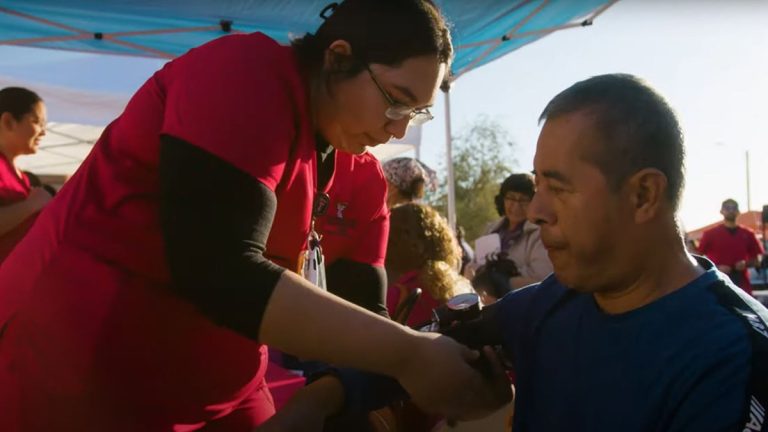By staff
Borders are places of meeting, joy and co-creation, according to Eva Moya, chair of social work at the University of Texas at El Paso.
The El Paso community is one of those places, where people enter the United States from Mexico, seeking asylum and opportunity. It is also a place of high human need, where food, housing and health services are in high demand by community members and newcomers.
Filling this gap is Health Outreach Prevention and Education, or HOPE, a collaborative program run by the School of Social Work at the University of Texas at El Paso. The program includes 85 organizations that provide a variety of services, including health care, food, housing referrals for unhoused people, access to Department of Public Health programs, agent support community health centers to navigate services, and much more. The organization also hosts health fairs to connect vulnerable populations to lifesaving care while addressing health disparities in El Paso County.
So far, the program has reached more than 1,600 people, providing on-site services and referrals to social welfare services that can improve their health. The program also involves university students training in healthcare fields so they can gain experience with patients.
“We add a dimension of humility and exposure so that the next generation of professionals will be better equipped to view the marginalized person as someone worthy of dignity and respect,” Moya said.
A $200,000 grant from the Direct Relief Fund for Health Equity, made possible with support from the AbbVie Foundation, enabled the University of Texas at El Paso School of Social Work to expanding HOPE health fairs to homeless and uninsured people in El Paso and beyond.
Since 2021, Direct Relief, through its Fund for Health Equity, has awarded more than $50 million to 163 organizations across the United States.
This video was directed, produced and edited by Oliver Riley-Smith Cinematography.


